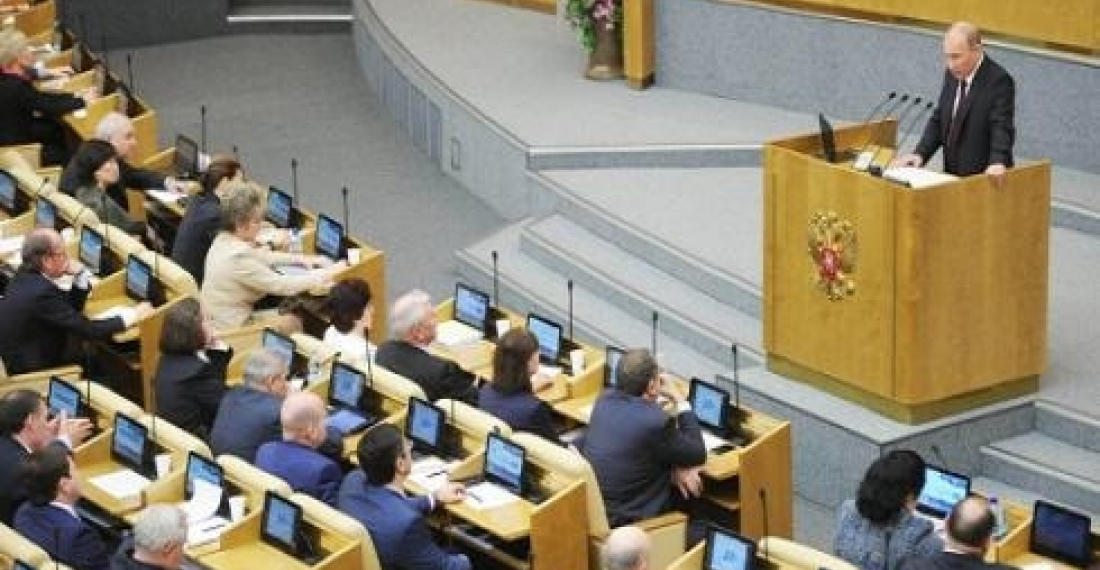В своем последнем выступлении в Думе в качестве премьер-министра России, прежде чем принять пост президента в мае, Владимир Путин изложил свое видение развития страны: "Россия у нас одна, и ее современное передовое развитие должно стать целью объединения всех политических сил страны, работающих на созидание".
В своем выступлении Путин приветствовал создание единого экономического пространства между Россией, Белоруссией и Казахстаном, как крупнейшее геополитическое событие для региона после распада Советского Союза.
"Создание Таможенного союза и Единого экономического пространства. На мой взгляд, это является важнейшим геополитическим и интеграционным событием на постсоветском пространстве со времен крушения Советского Союза." "Мы работаем в формате более тесной интеграции в рамках Единого экономического пространства ", Путин пошел дальше, добавив, что это включает свободу передвижения товаров, капиталов и рабочей силы.
С момента создания Таможенного союза между Россией, Белоруссия и Казахстаном и устранения таможенных барьеров в 2011 году товарооборот между странами увеличился на 37 процентов, 13-процентный рост был зарегистрирован в первые два месяца 2012 года, сказал Путин .
Он также сказал, что дальнейшая интеграция между этими тремя бывшими советскими республиками будет "неизбежна", и что следующим шагом будет создание Евразийского экономического союза к 2015 году.
"Рассчитываем, что к России, Белоруссии, Казахстану присоединятся и другие партнеры, заинтересованные в более продвинутом сотрудничестве.", добавил он.
Президенты трех стран в ноябре 2011 года подписали декларацию о евразийской экономической интеграции, дорожная карта для интеграционных процессов, направленных на создание Евразийского экономического союза на основе существующего Таможенного союза.
Источник: commonspace.eu, РИА-Новости и BBC World
Фото: Владимир Путин выступление в Государственной Думе России 11 апреля 2011 года (фото любезно предоставлено пресс-службой правительства России)
Commentary
Путин объявил о завершении пост-советской эпохи. Что дальше?







